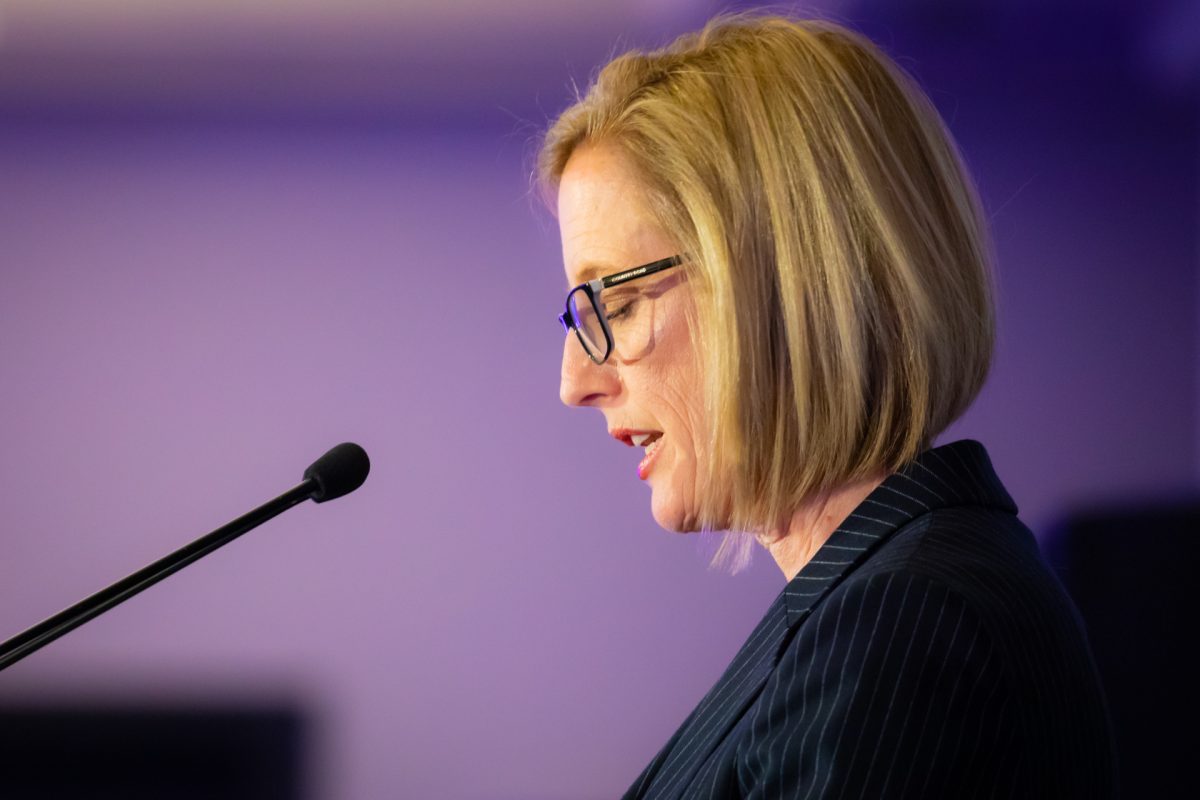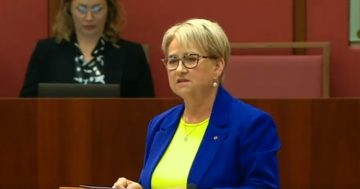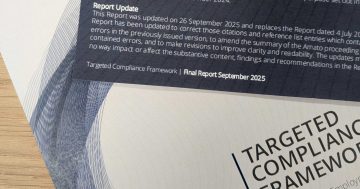
Public Service Minister Katy Gallagher insisted the government’s push to reduce spending on external consultants will be gradual. Photo: Michelle Kroll.
Government spending on the big four consultancy firms is on the decline, but taxpayers are still copping a huge bill for external advisory contracts.
The under-siege PricewaterhouseCoopers, along with KPMG, EY and Deloitte, together raked in over $800 million for more than 300 government contracts during the 2022-23 financial year.
That’s a significant drop of more than $600 million from the previous financial year, however, which gave the firms almost $1.5 billion for 1200-plus contracts.
The latest figures show the Federal Government’s push to reduce its spending on external consultants is gaining traction.
But it is a work in progress, with Finance and Public Service Minister Katy Gallagher insisting it will be gradual and that getting the right balance between Australian Public Service staff and external contracts is still to be reached.
Senator Gallagher blames much of the inflated spend on external contracts and labour for hire under the previous Coalition government.
Describing it as “ten years of damage”, Senator Gallagher says it can’t be undone overnight.
She points to an audit of the APS workforce from the 2021-22 financial year showing almost $21 billion was spent on hiring tens of thousands of external contractors and consultants.
The audit found there were about 54,000 full-time-equivalent roles being filled by externally contracted workers, in addition to the 144,000 actual APS staff.
“The Morrison government maintained its artificial cap on public servant numbers, promoting a mirage of efficiency, but were at the same time spending almost $21 billion of public money on a shadow workforce that was deliberately kept secret,” Senator Gallagher said when releasing her audit earlier this year.
“The Albanese Labor government acknowledges that there is a role for external labour in the APS but, where it is used, it should provide a clear value-add and not simply plug holes created by an ideological obsession to gut the APS.”
Those labour-for-hire figures are separate from the numbers being discussed at the moment in relation to the big four consultancy firms.
The Greens say the more than $800 million spent on the big firms this past year is still too much, though it has fallen since Labor won government more than a year ago.
Greens senator Barbara Pocock has called for changes in how huge external contracts are awarded, saying consultancy had eaten into the APS’s capability.
She said value for taxpayer money has to be more diligently evaluated and that a cap on external contracts should be enforced.
Senator Pocock pointed to the ongoing PwC breach of trust scandal that has eroded confidence in the consultancy sector.
“The increasing evidence about conflicts of interest in big consulting firms only adds strength to the argument that we need to cut back really dramatically,” she said.
Senator Pocock established the ongoing Senate committee inquiry into the integrity of consultant services to the government following revelations PwC shared controversial Treasury information for its own financial gain.
The matter is now the subject of police investigation and PwC has sold its government contracting business to Allegro Funds for $1, which created a new government consulting firm Scyne Advisory.
But that deal will come under particular scrutiny from senators seeking evidence the sale was not simply an act of ‘phoenixing’, where a failed business remerges with the same people and structure.
Senator Pocock will also grill the other three giant consultancy firms about their practices and if any will follow suit.
So far, none of the others are indicating they will be selling off the government advisory arms of their companies like PwC did. Meanwhile, the Federal Government is moving ahead in setting up an APS in-house consultancy.
May’s budget included a $10.9 million commitment over two years for an in-house consulting function within the Department of Prime Minister and Cabinet.
It is part of the government’s APS reform agenda and is aimed at reducing the massive spend on external contracts. Another $18.1 million over four years was also allocated to improving the transparency and capability of the government procurement process.
Original Article published by Chris Johnson on Riotact.








